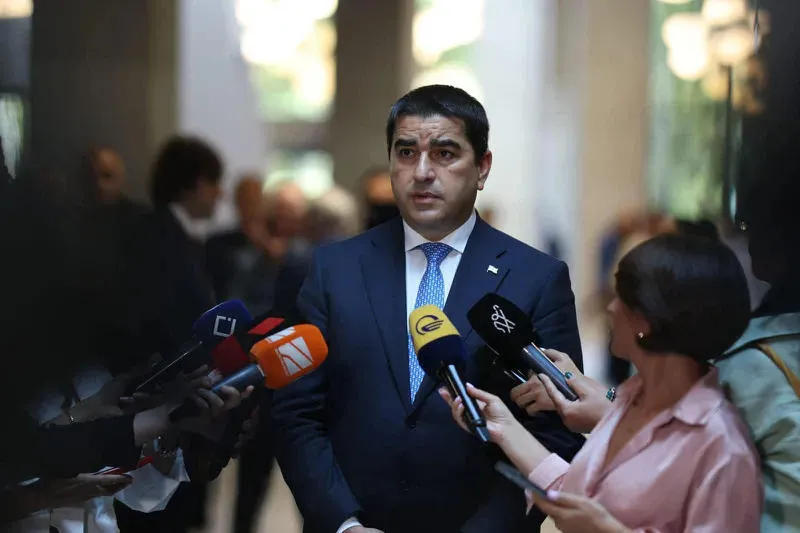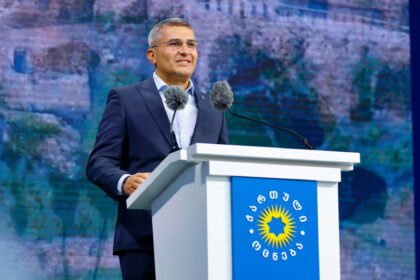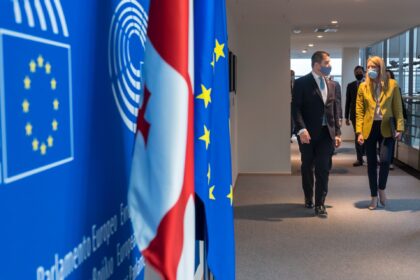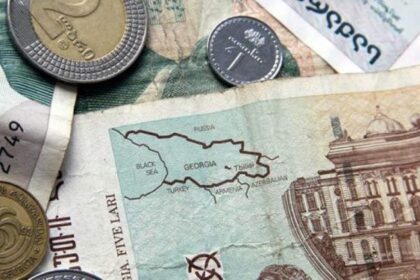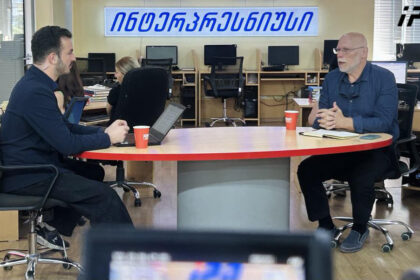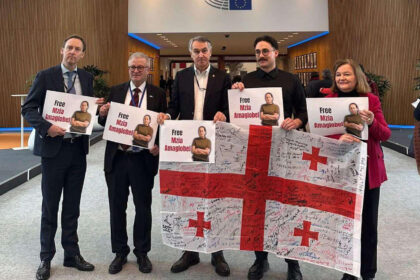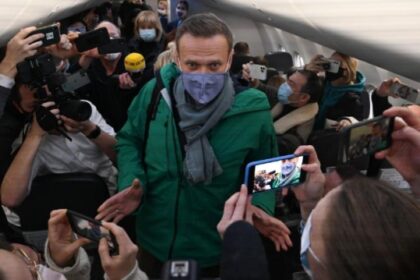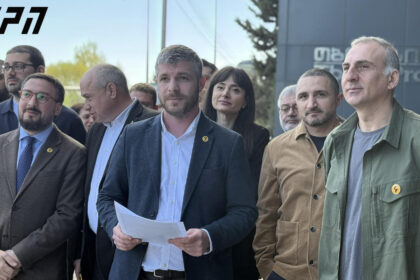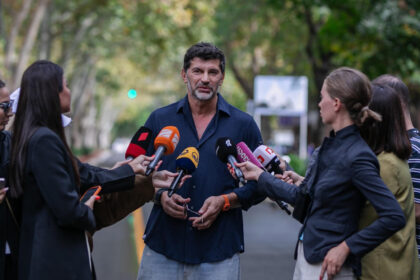**EU Ambassador Accused of Interfering in Georgian Politics**
The Speaker of the Georgian Parliament, Shalva Papuashvili, has spoken out against the EU’s Ambassador to Georgia, Paweł Herczyński. In a statement, Papuashvili accused Herczyński of interfering in Georgia’s internal political affairs and acting beyond his mandate.
According to Papuashvili, Herczyński’s comments on sanctions against members of the ruling party “Georgian Dream” were unwarranted and reflected a negative expectation. “It is very unfortunate that we see Mr. Herczyński eagerly and joyfully taking on the role of a prosecutor,” Papuashvili said. “He speaks about it with visible satisfaction, but instead of promoting peace and stability, he seems to be fueling tensions.”
Papuashvili pointed out that the EU Ambassador had previously stated that he did not interfere in internal politics regarding the banning of parties. However, she argued that Herczyński’s recent comments suggested otherwise. “I call on him and would advise him not to interfere in Georgia’s internal affairs,” Papuashvili said. “This is an internal matter that should be resolved by Georgians themselves.”
The dispute centers around Herczyński’s statements on possible sanctions against members of “Georgian Dream”. The EU Ambassador had expressed hope that all 27 member states would eventually unite in imposing sanctions. However, Papuashvili argued that this was an internal Georgian matter and that the EU should respect Georgia’s sovereignty.
**Background**
In recent months, Georgia has seen a rise in tensions between different political groups. Activists have reported acts of intimidation, violence, and brutality, with some perpetrators facing impunity. Herczyński’s comments on sanctions were seen as an attempt to exert pressure on the Georgian government.
Papuashvili’s statement highlights the complexities of EU-Georgia relations. While the EU has expressed support for Georgia’s bid to join the bloc, tensions between Brussels and Tbilisi have also been evident. The Speaker’s remarks suggest that some in Georgia are wary of what they perceive as EU interference in their internal affairs.
**What’s Next?**
The incident is likely to fuel further debate about the role of international actors in resolving domestic conflicts. Some might view Herczyński’s comments as an attempt to strengthen democratic institutions, while others see them as a threat to Georgia’s sovereignty. As Papuashvili put it: “If extremist organizations are not needed in the EU, then they are not needed in Georgia either.” The spat between the Speaker and the EU Ambassador is likely to be closely watched by observers of Georgian politics.
Read More @ www.interpressnews.ge




